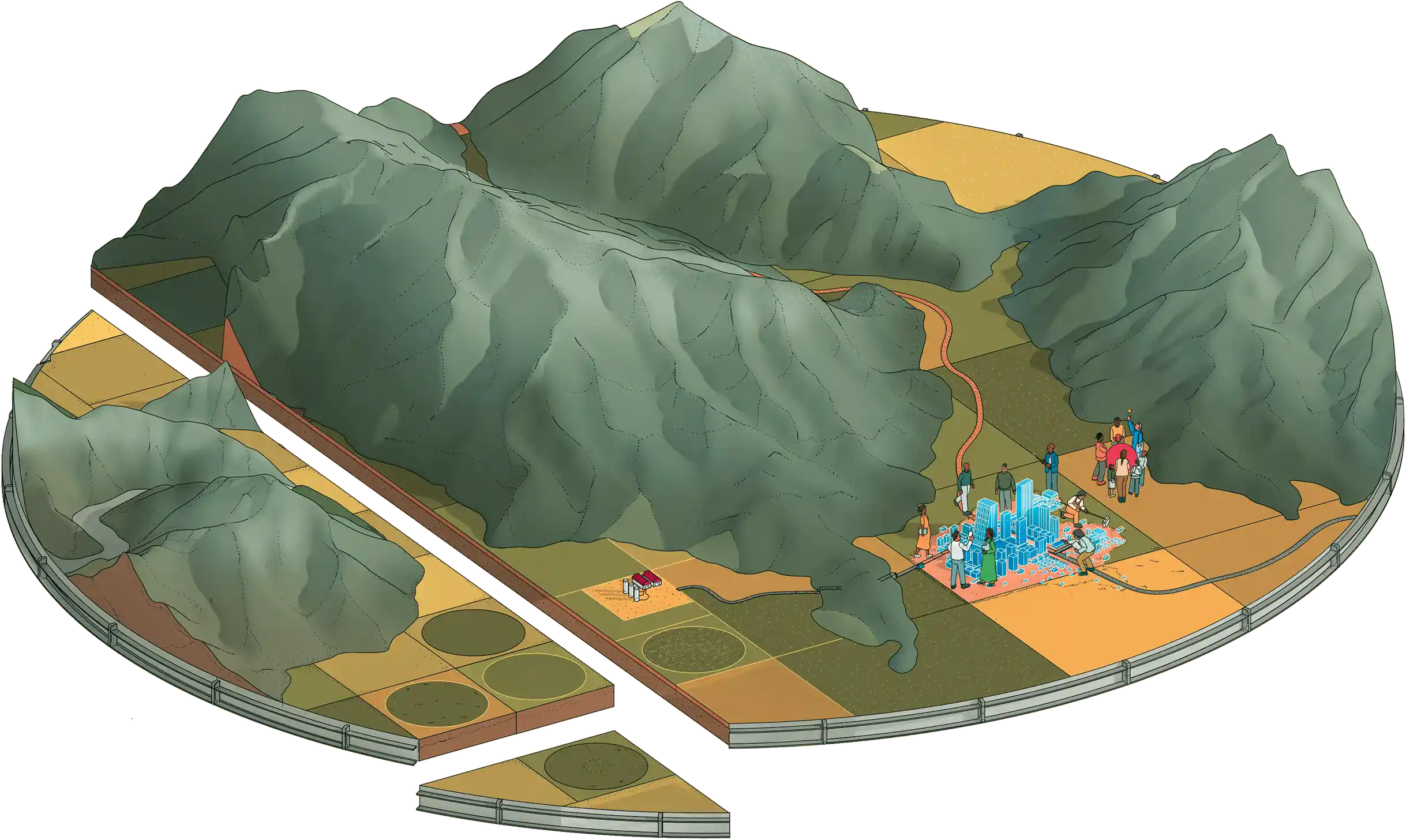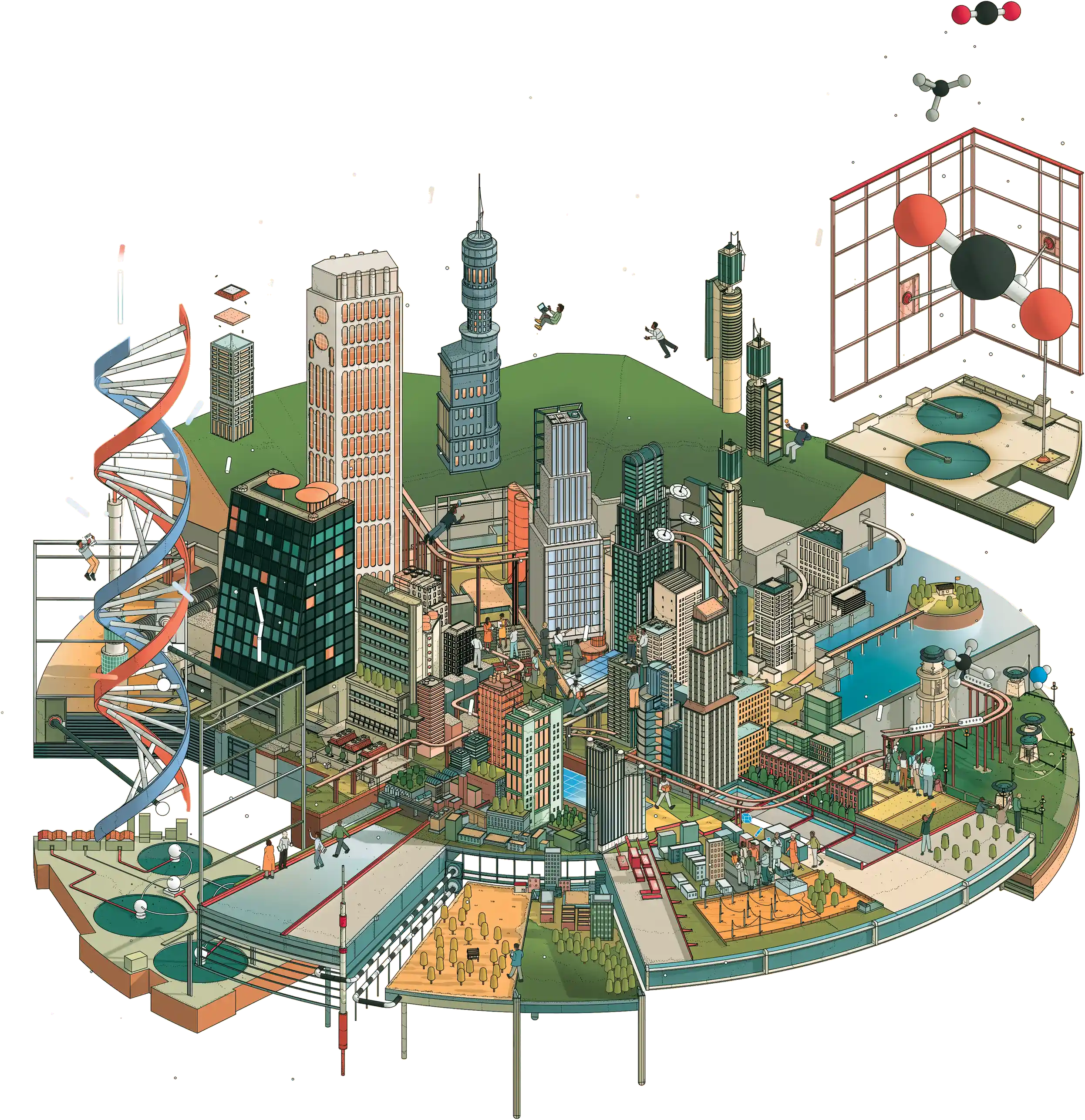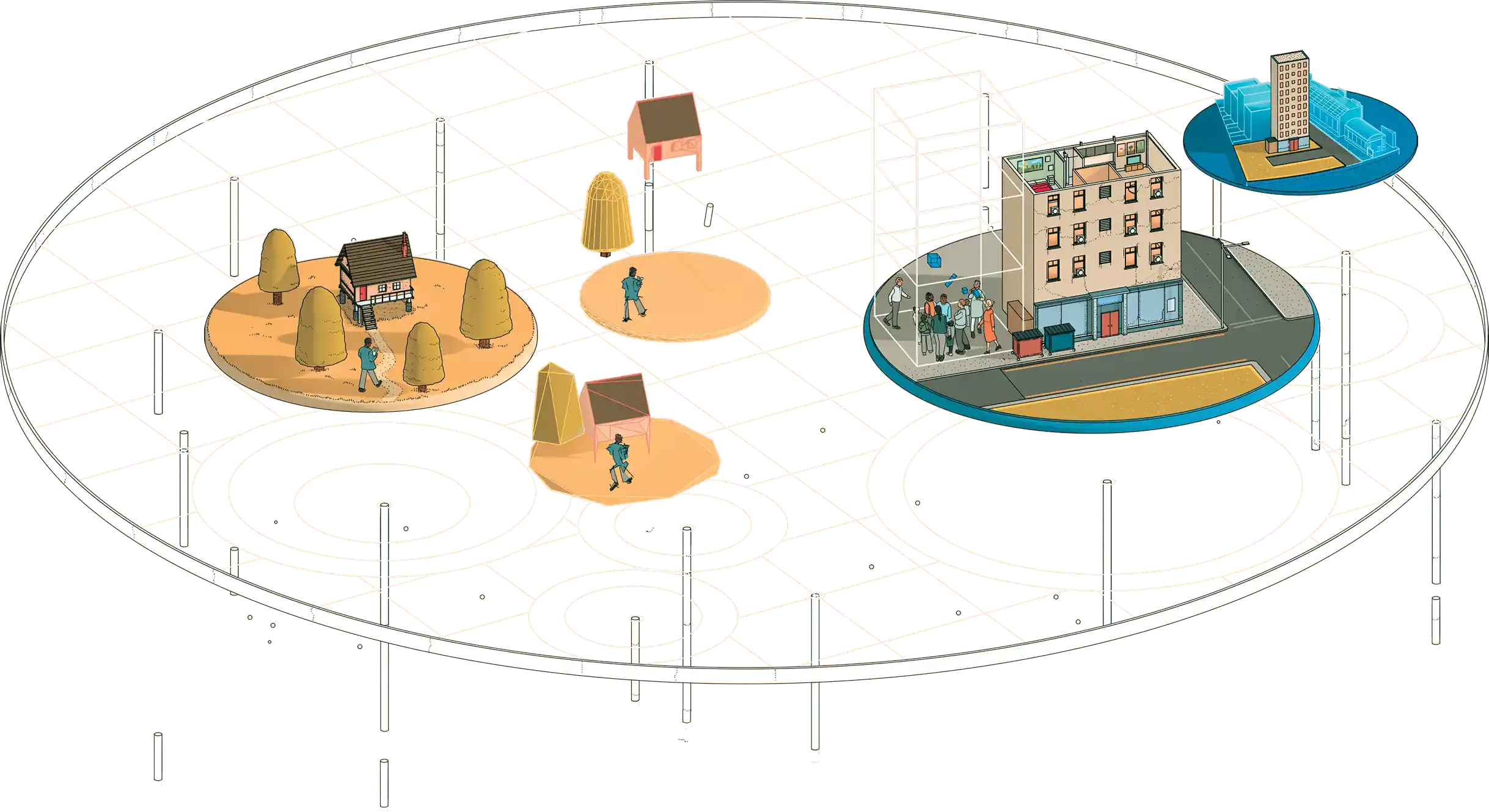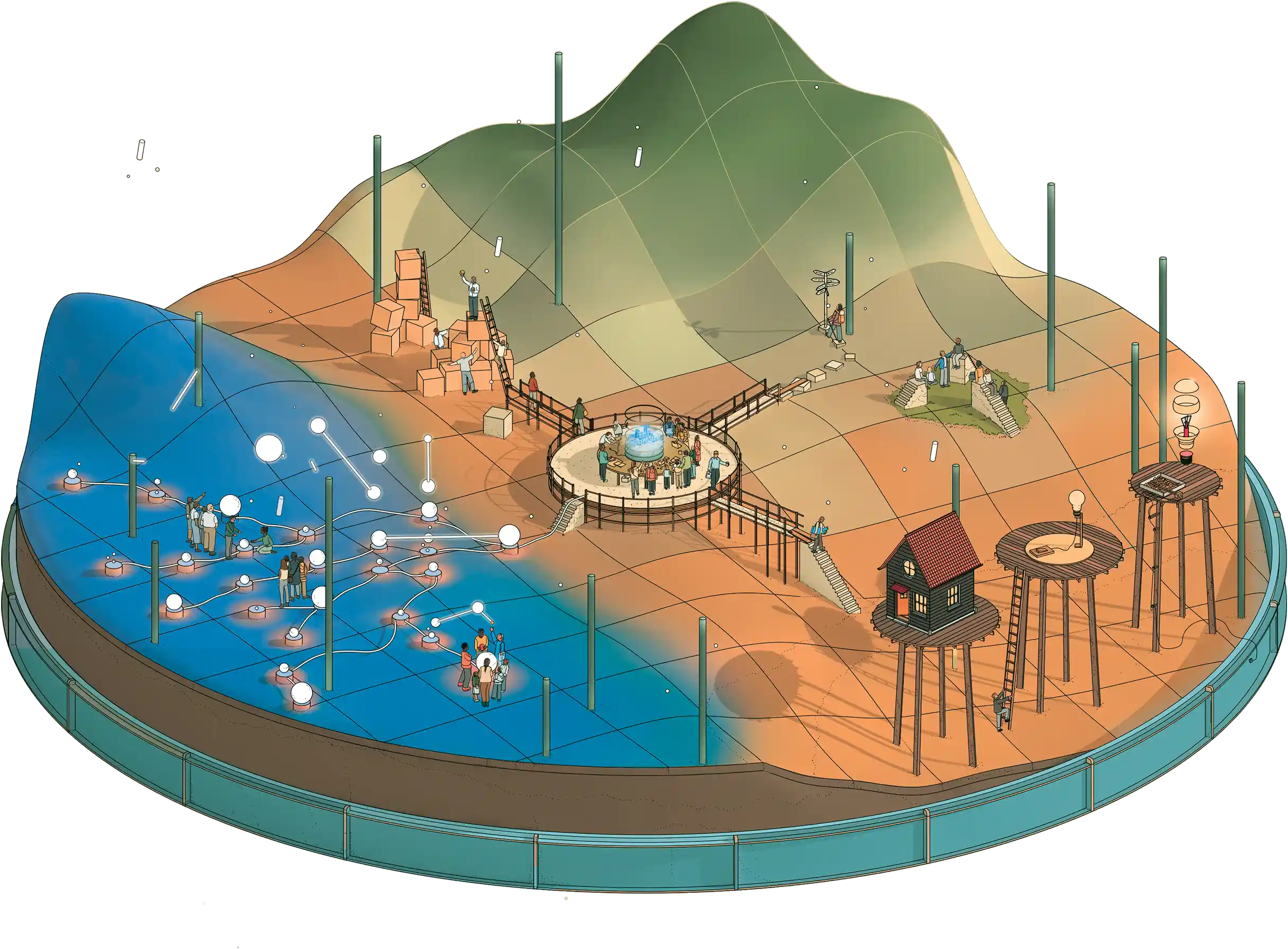Our work
Core Technology
Basis is building technology that can reason about and operate in environments of the kind of boundless complexity and detail that reality has to offer. To do this, we will focus on how to represent and discover models of phenomena in the world at unprecedented fidelity and scale, incorporating available knowledge of all kinds, be it large or small amounts of data, interactions and experiments, or the wealth of tacit knowledge accumulated by human experts.
One might think that solving complex problems requires complicated technology. We believe the opposite is true: that there are fundamental principles of reasoning that confer an ability to solve problems in general. We aim to leverage ideas from programming languages, compilers and databases to uncover these principles in their most general, reusable, composable forms, and ideas from deep learning to power generic, scalable approximate algorithms for applying them.
We aim to publish technical results regularly at leading venues like ICML, NeurIPS, and PLDI but our primary research medium will be a digital lingua franca of artificial intelligence: a unified, growing body of open-source software that serves as a bidirectional interface with the rest of the world. One example of this is ChiRho, an experimental language for causal reasoning.
Our team’s prior research work has also realized parts of this ambitious vision, developing languages and methods for causal reasoning (Omega and SBI), probabilistic machine learning (Pyro and NumPyro), and computational neuroscience and cognitive science (successor representation learning and Autumn).
Challenge Problems
We distill general technology from working with experts on hard problems that matter.

Building a rational, automated robot design agent
Challenge
While human engineers can create sophisticated robots through intuitive design processes, existing automated approaches to robot design optimization remain limited in their capabilities. Current methods either require massive computational resources or are constrained to simple continuous parameter spaces, making it difficult to explore innovative robot morphologies that could better solve real-world problems.
Project
We are developing R-ADA (Rational Automated Design Agent), an AI system that combines the strengths of human design intuition with computational power. R-ADA uses large language models to control CAD/CAM environments, employs probabilistic programming for reasoning about uncertainty, and leverages Bayesian inference to bridge the simulation-reality gap. This system aims to generate optimal robot designs by breaking down complex design tasks into manageable steps while considering factors like manufacturability, maintenance, and real-world performance.

Citymaking through participatory modeling
Challenge
Residents, community groups, and policymakers all have a stake in making decisions that affect different aspects of the city, but today’s print-centric citymaking processes can be exclusionary. How can technology give agency to a broader set of stakeholders, and help them more effectively communicate their knowledge, values, and questions regarding city policies to each other?
Project
We aim to build a digital representation of the city that incorporates existing knowledge in a participatory manner and allows people to explore different scenarios—that is, a city model. Working with local collaborators, we aim for the model to give more agency to underserved constituencies in citymaking processes like rezoning, street life, and budgeting.

Collaborative intelligent systems
Challenge
Many of humanity’s greatest accomplishments and failures have been determined by our ability or failure to collaborate. As global collaborative systems face unprecedented human-induced changes, there is an urgent call for stewardship akin to the measures demanded by climate change. Beyond humans, it is essential to understand collaborative behaviors across different species, and how properties of an ecosystem affect, and are affected by, the behavior and nervous systems of each animal.
Project
We aim to create software tools for understanding and reasoning about collaborative intelligent systems. This involves integrating and synthesizing knowledge across different disciplines, species, and spatiotemporal scales. We're developing innovative computational methods to study dynamic systems across different levels of abstraction. We aim to produce accessible open-source software tools that empower scientists, policymakers, and the public to make more informed decisions about collaborative intelligent systems.

Emulating intuitive scientific discovery
Challenge
Children resemble professional scientists when they learn about the world around them — they make predictions, revise beliefs, and consolidate their knowledge into theories. Cognitive science suggests that this resemblance is more than skin-deep; children are doing science the same way scientists do. How can we develop machines that engage in this kind of intuitive scientific discovery?
Project
Basis is approaching the challenge as one of active program and language synthesis, developing systems that actively build models of real and simulated environments. These systems construct programs that explain their observations, as well as the languages in which those programs are expressed.

Making impossible measurements of cell and tissue dynamics
Challenge
Many of the biggest questions in biology today concern changes over time — e.g. why does a healthy cell develop into a malignant tumor? Unfortunately, our most powerful experimental technologies can only be applied once to a sample, usually destroying it in the process, so many experiments interrogating changes over time are impossible to perform directly.
Project
We aim to learn dynamical models of cell or tissue multi-omic state by integrating many kinds of incomplete causal knowledge, such as known mechanistic signals of temporal change, high-quality reference datasets, and experimental perturbations. We can use the models to partially identify outcomes of impossible experiments (like taking snapshots of the same sample twice).
Interested in working with us on any of the projects above? Contact us at contact@basis.ai.
Interested in staying up to date as we develop new core technology and challenge problems? Join our mailing list.
You can also read more about our collaboration opportunities here.
Read our Financial Conflict of Interest Policy here.